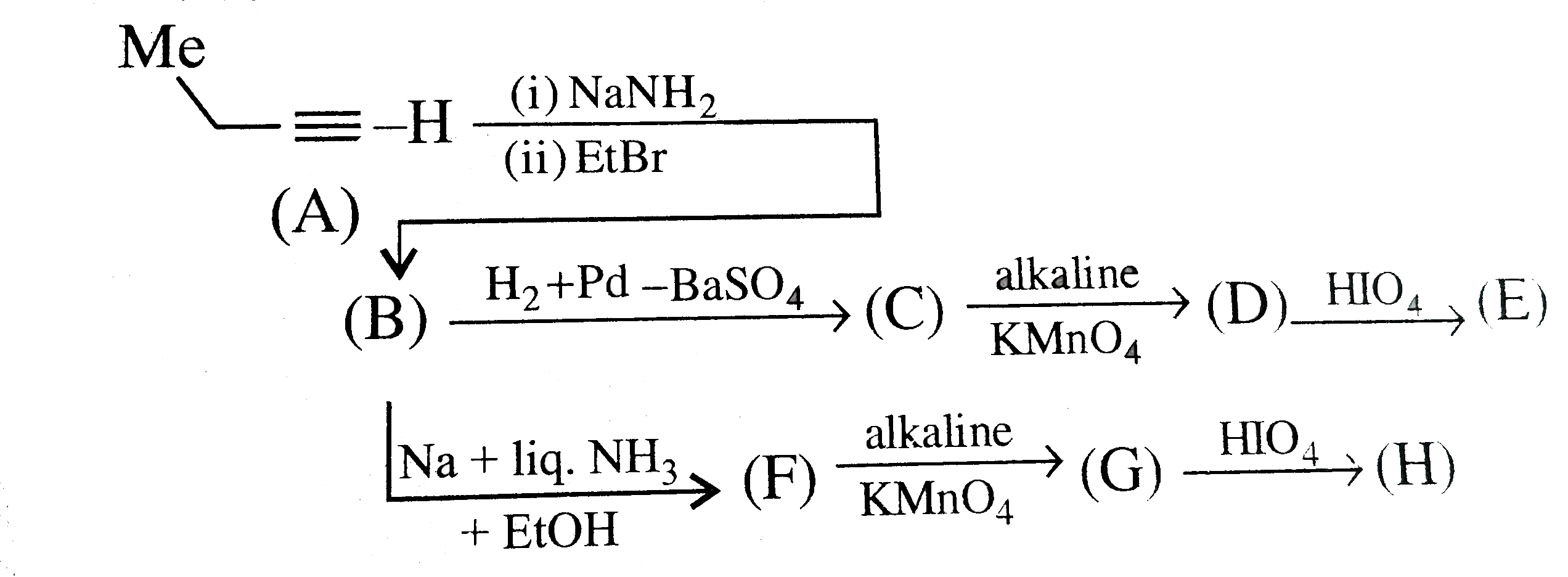
The compound (F) is:
a.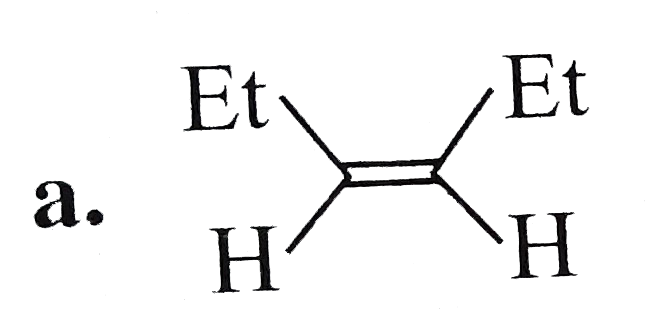
b.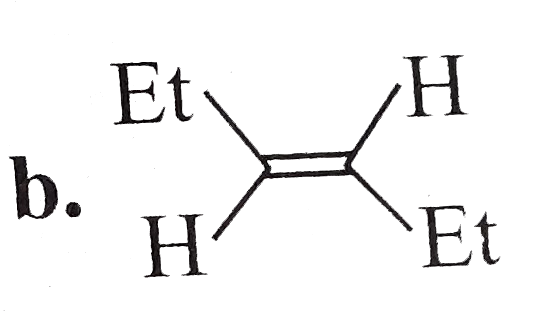
Et−≡−Et
d.Both (a) and (b)
The correct Answer is:B
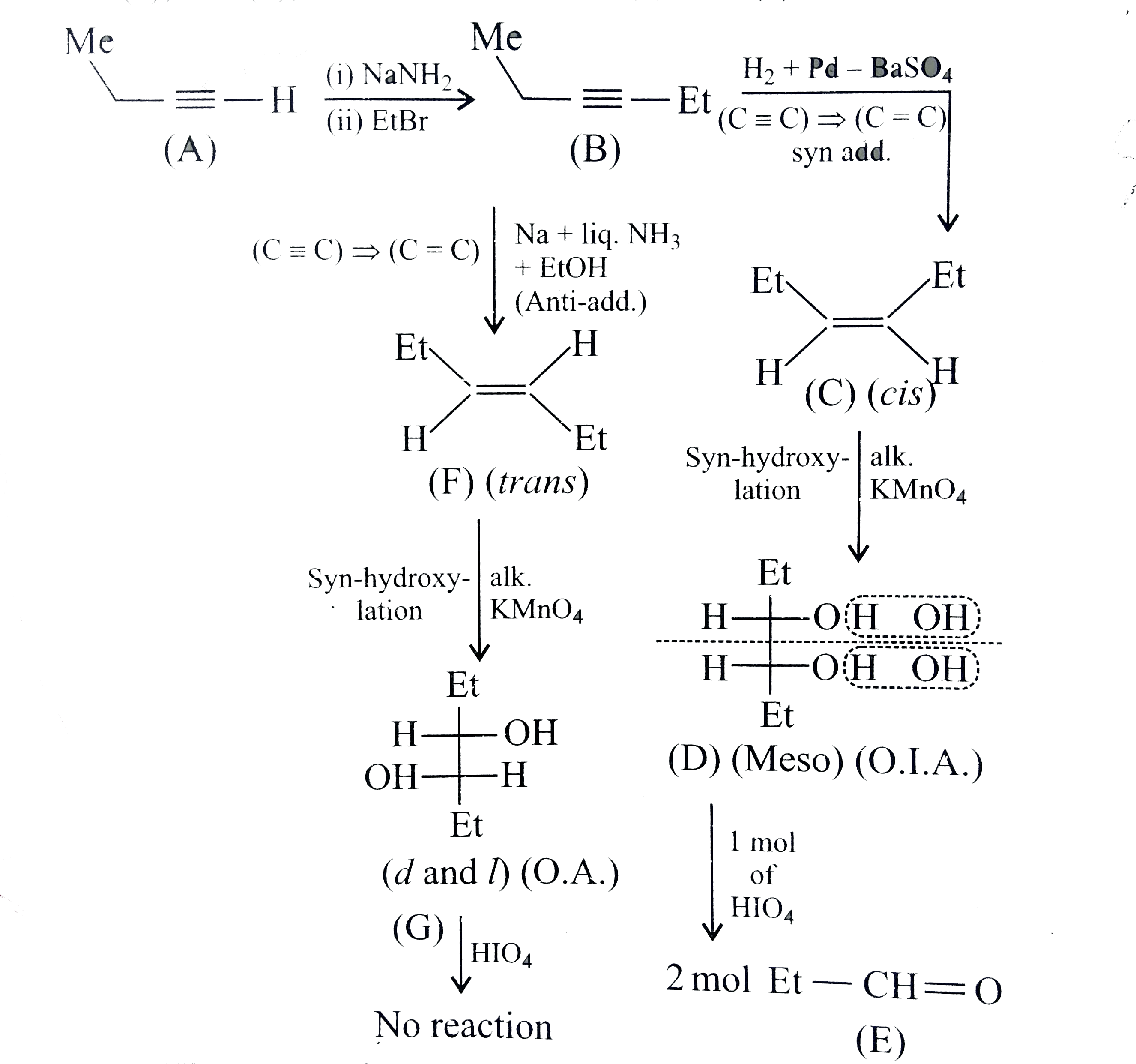
(Since two (−OH) group are in anti position, for periodic cleavage, two (−OH) must be in syn (or cis) position.)
Topper's Solved these Questions
- REDUCTION AND OXIDATION REACTION OF ORGANIC COMPOUNDSBOOK - CENGAGE CHEMISTRYCHAPTER - REDUCTION AND OXIDATION REACTION OF ORGANIC COMPOUNDSEXERCISE - Exercise (Multiple Correct)
35 Videos
- REDUCTION AND OXIDATION REACTION OF ORGANIC COMPOUNDSBOOK - CENGAGE CHEMISTRYCHAPTER - REDUCTION AND OXIDATION REACTION OF ORGANIC COMPOUNDSEXERCISE - Exercise (Single Correct)
90 Videos
- REDUCTION AND OXIDATION REACTION OF ORGANIC COMPOUNDSBOOK - CENGAGE CHEMISTRYCHAPTER - REDUCTION AND OXIDATION REACTION OF ORGANIC COMPOUNDSEXERCISE - Exercise
11 Videos
- QUALITATIVE INORGANIC SALT ANALYSISBOOK - CENGAGE CHEMISTRYCHAPTER - QUALITATIVE INORGANIC SALT ANALYSISEXERCISE - Viva Voce Questions And Part-C (Analysis Of Cations)
42 Videos
- SOLID STATEBOOK - CENGAGE CHEMISTRYCHAPTER - SOLID STATEEXERCISE - Ex 1.2 (Objective)
9 Videos
Similar Questions
An acidic compound (A) , C4H8O3 , loses its optical activity on strong heating yielding (B), C4H6O2 , which reacts readily with KMnO4 . (B) forms a derivative (C) with SOCI2, which on reaction with (CH3)2NH gives (D). The compound (A) on oxidation with dilute chromic acid gives an unstable compound (E) which decarboxylates readily to give (F), C3H6O. The compound (F) gives a hydrocarbon (G) on treatment with amalgamated Zn and HCI. Give structures of (A) to (G) with proper reasoning.
View SolutionAn acidic compound (A) C4H8O3 loses its optically activity on strong heating yielding (B), C4H6O2 which reacts readily with KMnO4. (B) forms a derivative (C ) with SOCl2, which on reaction with (CH3)2NH gives (D). The compound (A) on oxidation with dilute chromic acid gives an unstable compound (E) hich decarboxylates readily to give (F), C3H6O. The compound (F) gives a hydrocarbon (G) on treatment with amalgamated Zn and HCl. Give the structures of (A) to (G) with proper reasoning.
View Solution
Knowledge Check
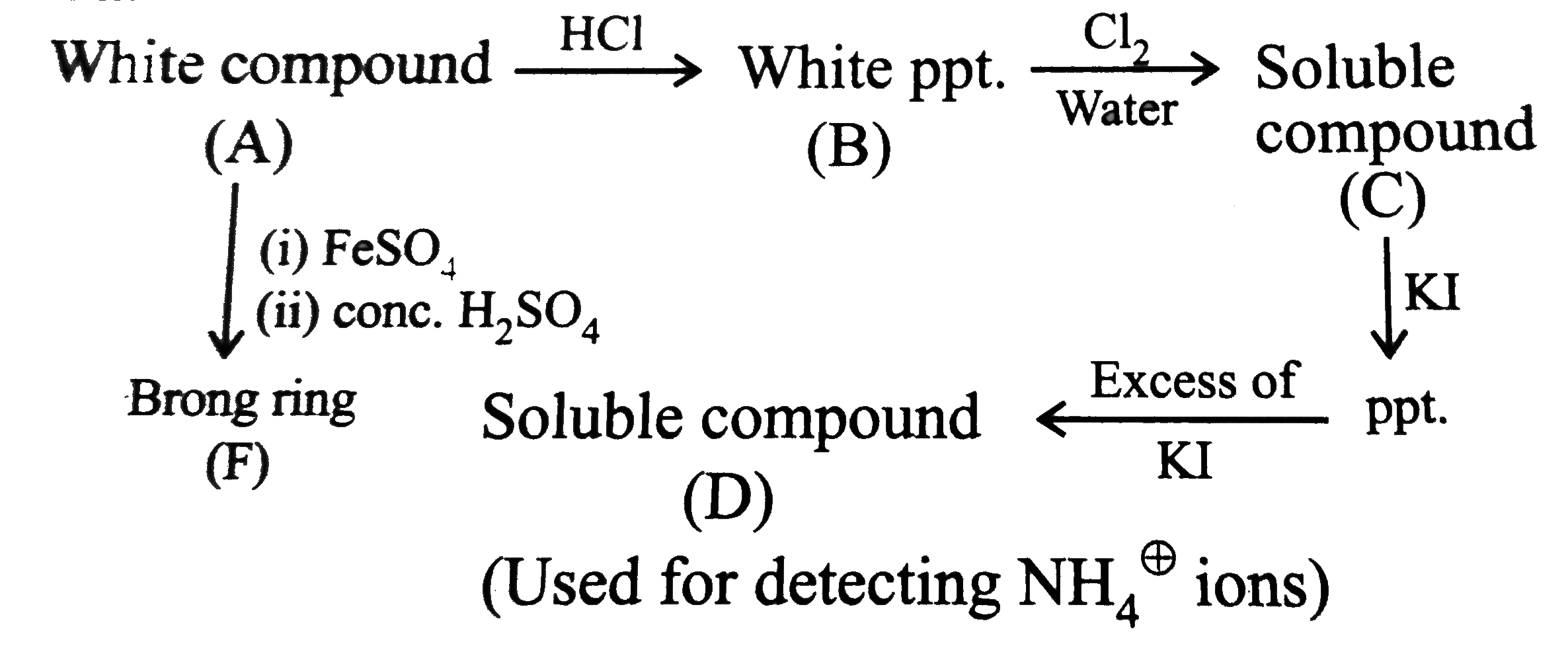
Oxidation state of Fe in compound (F) isA+1B+2C+3D+4(i) An aqueous solution of a white coloured compound (A) on reaction with HCl gives a white precipitate of compound (B).
(ii) (B) becomes soluble in chlorine water with the formation of (C)
(iii) (C) reacts with KI to give a precipitate which becomes solube in excess of it forming a compount (D). the compound (D) is used for detecting ammonium salts.
(iv) (B) and (C) both, on treatement with SnCl2 give a grey precipitate of (E).
(v) When conc. H2SO4 is added slowly into a mixture of cold solutions of (A) and FeSO4 is added slowly into a mixture of cold solutions of (A) and FeSO4, a brown ring of compound (F) is formed.
The oxidation number of FE in compound (F) is:A+1B+2C+3DzeroThe compound (X) with M.F. C4H11N on treatment with HNO2 gives a tertiary alcohol with M.F. C4H10O. The compound (X) will give
ACarbylamine reactionBHofmann mustard oil reactionCDiazonium salt as intermediate with HNO2DGives 2-methyl-2-nitropropane on oxidation with KMnO4
An organic compound C8H10 (A) on treatment with alkaline KMnO4 gives a compound C6H6O4. (B) which on strong heating gives C6H4O3 (C). The compound (D) in dry benzene in presen of AlCl3 gives compound (E). The compound (E) on treatment with PCl5 followed by reaction with H2/Pd,BaSO4 gives compound (F). Identify (A) to (F).
View Solution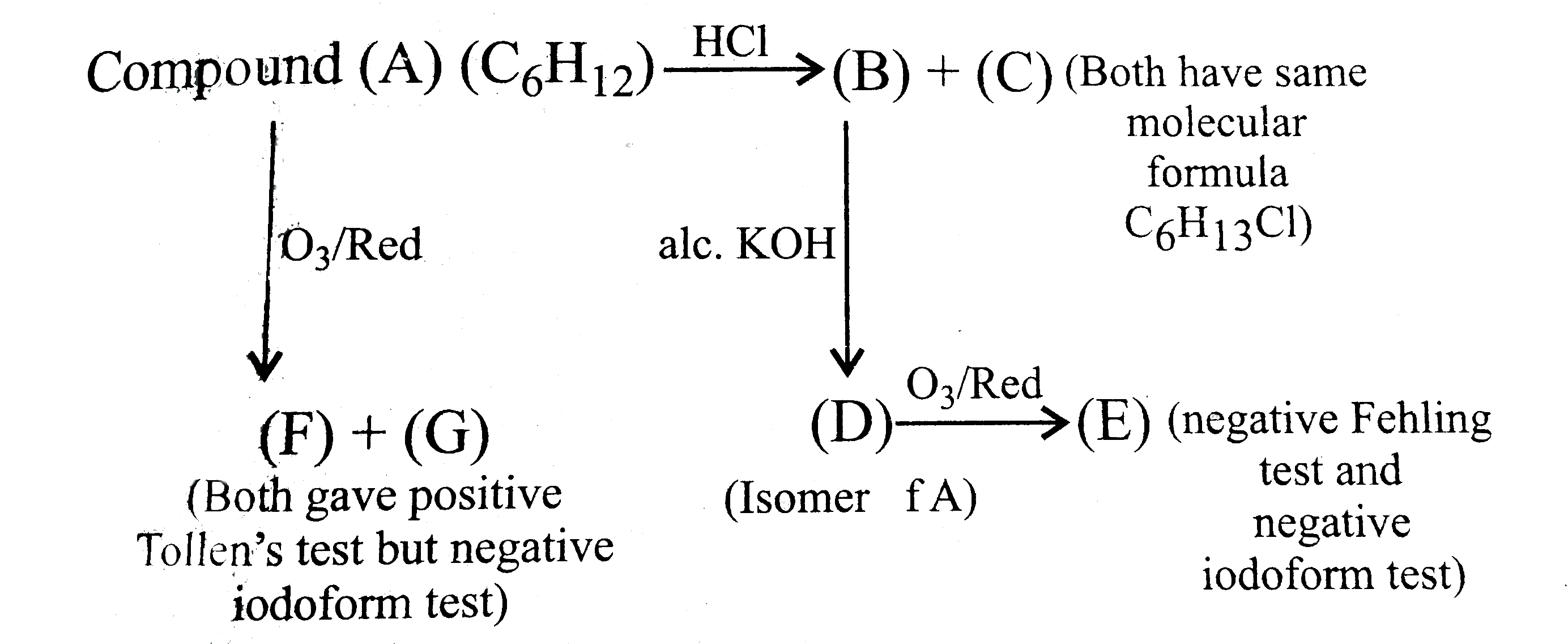
The compounds (F) are (G), resprctively, are:
View Solution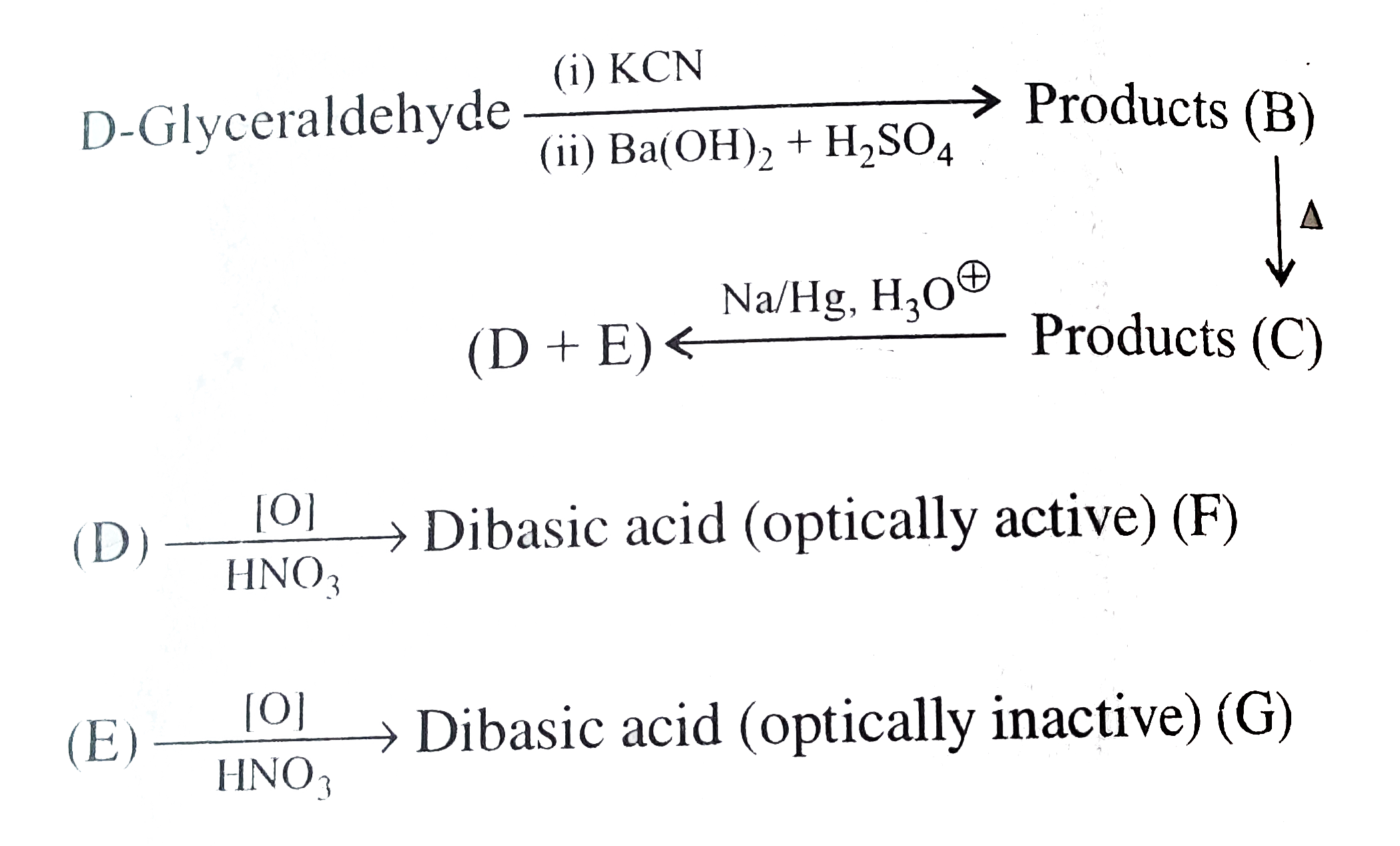
The compounds (F) and (G), respectively, are:
View Solution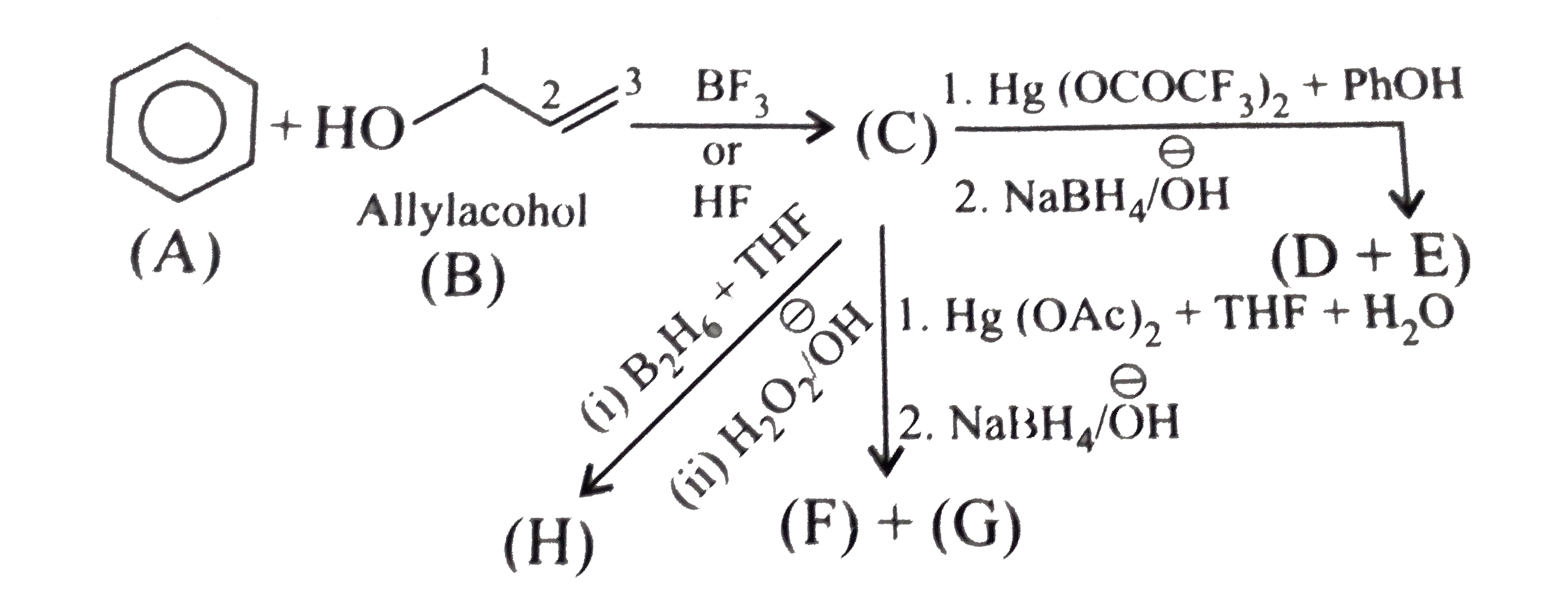
The compounds (F) and (G) are:
View Solution
The compounds (F) and (G), repectively, are:
View Solution
